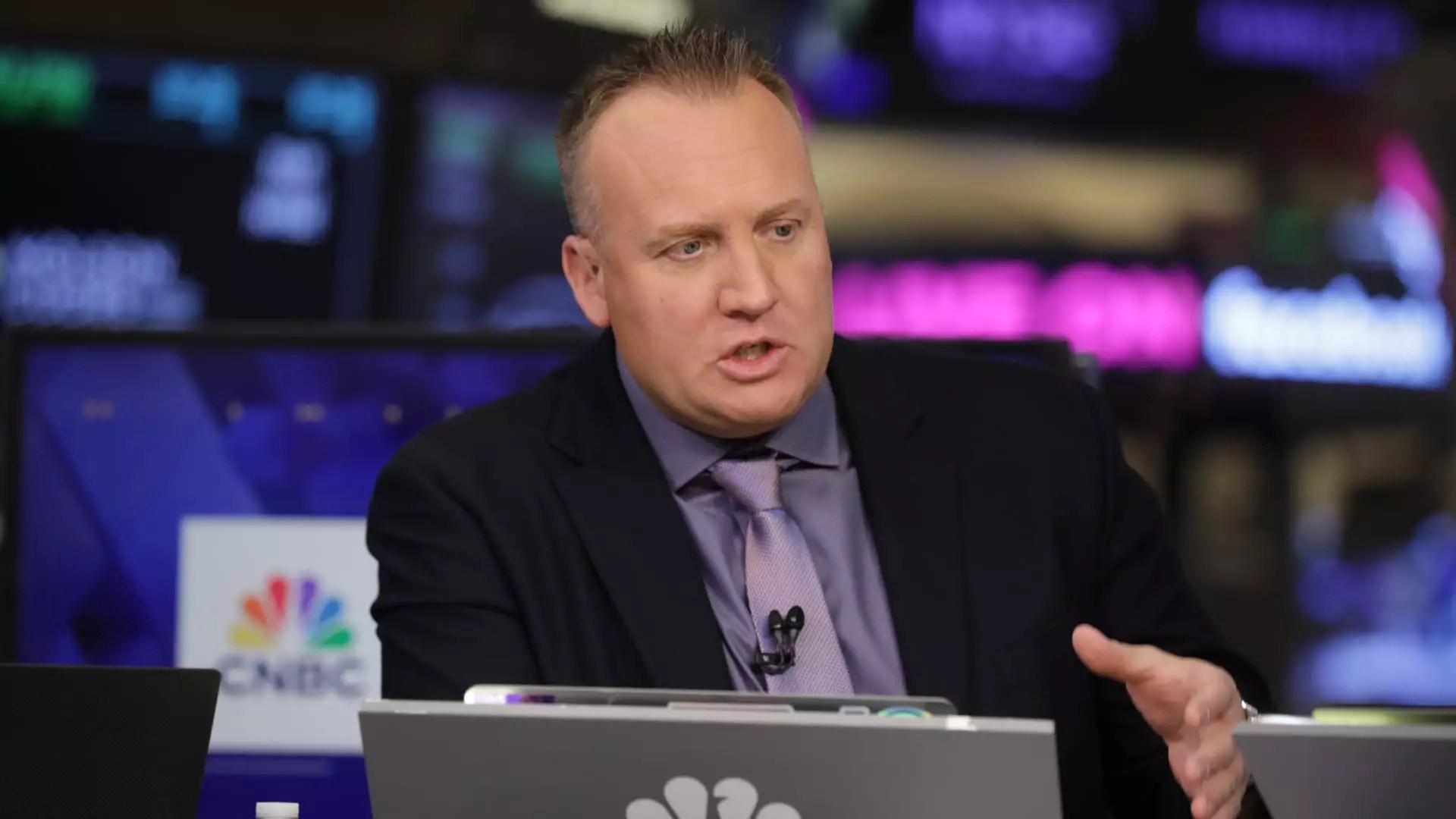Artificial Intelligence (AI) is no longer just a buzzword; it’s becoming the driving force of economic conversations, especially within stock markets. Recent analyses reveal a staggering 2.6 times more mentions of “AI” in earnings calls compared to “tariff.” This shift signifies a crucial transition in how investors gauge market health and future potential. Tariffs, once front and center in financial discussions, are increasingly seen as tributaries in a broader river of transformative technology. This new reality raises pertinent questions: Are we strategically underestimating the influence of groundbreaking technologies? More importantly, are we prepared for the future that AI is set to carve out?
Big Tech and the Power of Affirmative Guidance
As Josh Brown, CEO of Ritholtz Wealth Management, astutely pointed out, major companies like Microsoft and Meta played a pivotal role in securing market stability. When Microsoft revealed unexpectedly robust revenue forecasts, it triggered a rising tide that lifted the entire tech sector. Between April’s market turmoil and the subsequent recovery, it’s evident that bullish guidance from these companies holds the power to steer the stock market’s direction. While many traditional analysts grapple with tariffs, the real narrative lies in the optimism stemming from AI-driven growth strategies.
This juxtaposition between tariffs and AI raises a vital discussion about where market analysts should focus their efforts. Are we in danger of anchoring ourselves to the past by over-focusing on international trade disputes, when the real innovation is happening in our own backyard? The truth is that focusing on tariffs could be likened to scanning an antiquated map while global infrastructures are rapidly transitioning into the digital age.
Nvidia: The Sun of the AI Solar System
Remarkably, Brown refers to Nvidia as the “sun” around which the AI solar system revolves. This analogy is compelling. Nvidia’s advancements in graphics processing units (GPUs) not only power AI applications but also represent the backbone of AI’s mechanics. The implications for both investors and the wider economy are profound. As AI technologies mature, they open doors not just for Nvidia but for a slew of industries that rely on these advancements.
However, let’s not become overly fixated on a single company or its stock performance. While Nvidia’s trajectory appears promising, it serves as an important case study about how reliant we are becoming on technology to drive economic growth. Should the market be fused so tightly with the fate of a single entity? That raises concerns about market resilience—near-monopolistic tendencies can lead to perilous financial ramifications if slumps occur.
Market Sentiment and Economic Health
The current landscape, characterized by a bullish sentiment largely driven by AI, invites ongoing analysis. It is key to understand how investor emotion interacts with tangible economic indicators. Traditionally, tariffs could incite panic, negatively swaying stock prices overnight. However, AI appears to galvanize a new optimism, with firms willing to invest and expand in a tech-driven future.
Nevertheless, are we venturing into dangerously uncharted territory? While enthusiasm for AI is understandable, we must temper it with the reality that technological advancements bring a set of challenges related to ethics, employment, and governance. Is there a risk that we might overlook the necessary regulatory frameworks in our rush toward innovation?
A Dual-Track Future: Innovation versus Traditional Focus
The duality between tech innovation and traditional financial metrics is becoming increasingly pronounced. Stakeholders must consider whether an overemphasis on innovative technologies could lead to significant blind spots. Are tariffs still relevant? Only in a limited context. Perhaps a more pressing initiative would be to develop frameworks that can further harness AI’s potential while safeguarding economic interests.
While it’s exhilarating to observe AI fortifying its role as the guiding star in this economic galaxy, a balanced approach is crucial. The narrative needs to evolve—moving away from mere competition with governments to fostering a collaborative environment where technology and ethical oversight coalesce in a meaningful way. As we stand on the precipice of this technological frontier, let’s ensure we are wielding the full force of these innovations responsibly.


Leave a Reply